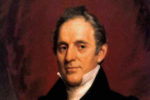
Do you want to desire the things that God desires? One way that God answers this prayer is through his Word – revealing to us his intentions for our lives and for the world.

Peter does not present false teachers merely as men who teach mistruths about the Bible or God. To be sure, they are ‘false teachers,’ but he emphasizes their character qualities as much as, maybe even more than, their audible words….

The gracious King invites you to pray. He offers to hear your requests, to draw near to you as you worship him, and to give you access to his throne if you are in Christ.

Many people read the Bible, but from my experience, not many are engaged in Bible study. It’s the difference between walking through a gold field and picking up golden nuggets or buying some mining equipment and excavating the fabulous treasures…

How should Christians respond to Black Lives Matter, to mask mandates, to political controversy? How do we interact with those who disagree with us, and what do we do when our church takes a view that is different from our own?

While the specific cultural situations of the present are unlike the past, there is much that modern believers can learn from the past. One of the great instructors of evangelism must surely be Asahel Nettleton, the itinerant evangelist of the Second Great Awakening.

Four years ago, on the inauguration of President Trump, I penned An Open Letter to President Trump; this year, I continue the tradition with a similar letter to President Biden.

The Roman Empire had a profound effect on both Biblical history and world history. This short sketch provides the main contours.

I am convinced that few books are more powerful and life-changing than biographies. Biographies have a unique power to shape our view of the world and our idea of how to live life.




